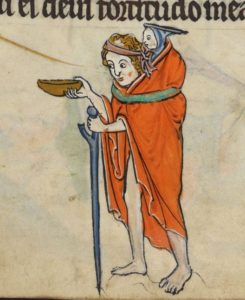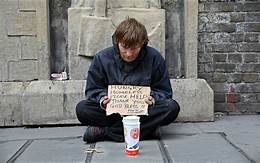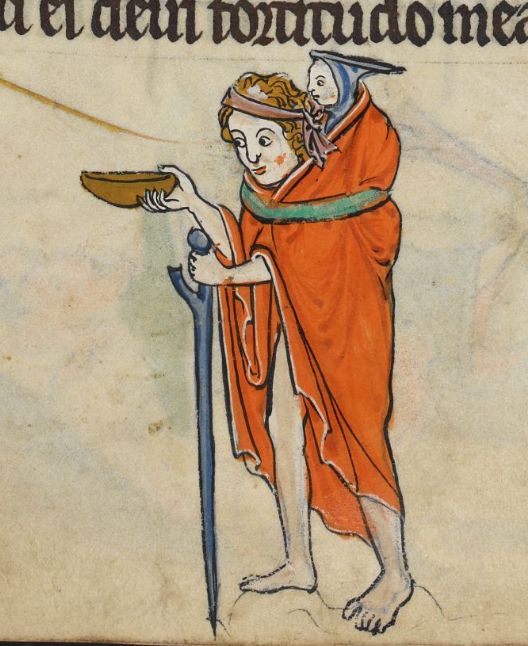 This quote from Piers Plowman B Version describes and ageless and universal problem. “Ich haue . . . nought so much worship. As tho that set at syde table . . . But sitte as a begger bordelees bi myself on the grounde.” A rougt translation into modern English might read “I have not so much (your) worship. As those that sit a tableside. But (rather) sit as a begger tableless, by myself on the ground.”
This quote from Piers Plowman B Version describes and ageless and universal problem. “Ich haue . . . nought so much worship. As tho that set at syde table . . . But sitte as a begger bordelees bi myself on the grounde.” A rougt translation into modern English might read “I have not so much (your) worship. As those that sit a tableside. But (rather) sit as a begger tableless, by myself on the ground.”
Homelessness is not a new problem. An article published in Quora explains that the problem described in the quote from Piers Plowman B was both common and frequent. “A full 20% of the medieval population were destitute and homeless, wandering the roads of Europe looking for work, shelter or for charity.” That number changes from country to country and century to century. One thing is eternal, the poor are always with us.
 It is a fascinating exercise to research the treatment of the poor throughout history, and the Middle Ages is as interesting as any other period. However, lack of documentation regarding the poor and homeless hampers such studies. One possible reason for such a lack is that the stories of the poor were simply not as interesting as those of nobler classes. Another possibility is that the poor were not as ubiquitous as some researchers have concluded. In his respons to the Quora article Jim Wayne states “It was hard to become homeless in the Medieval period. Most people lived in small villages, where everyone knew everyone else. It made social mobility difficult; if you were from a family that was looked down on, it would be hard to work your way into respectability.” He goes on to qualify his assertion with details regarding population changes due to war, famine and pestilence.
It is a fascinating exercise to research the treatment of the poor throughout history, and the Middle Ages is as interesting as any other period. However, lack of documentation regarding the poor and homeless hampers such studies. One possible reason for such a lack is that the stories of the poor were simply not as interesting as those of nobler classes. Another possibility is that the poor were not as ubiquitous as some researchers have concluded. In his respons to the Quora article Jim Wayne states “It was hard to become homeless in the Medieval period. Most people lived in small villages, where everyone knew everyone else. It made social mobility difficult; if you were from a family that was looked down on, it would be hard to work your way into respectability.” He goes on to qualify his assertion with details regarding population changes due to war, famine and pestilence.
These qualifications are as true now as then. The percentage of the population of homeless and poor varies worldwide for many of the same reasons. What has not changed is the degree of our responsibility to our less fortunate brothers and sisters. Each man, woman and child must decide that for themselves.


Recent Comments